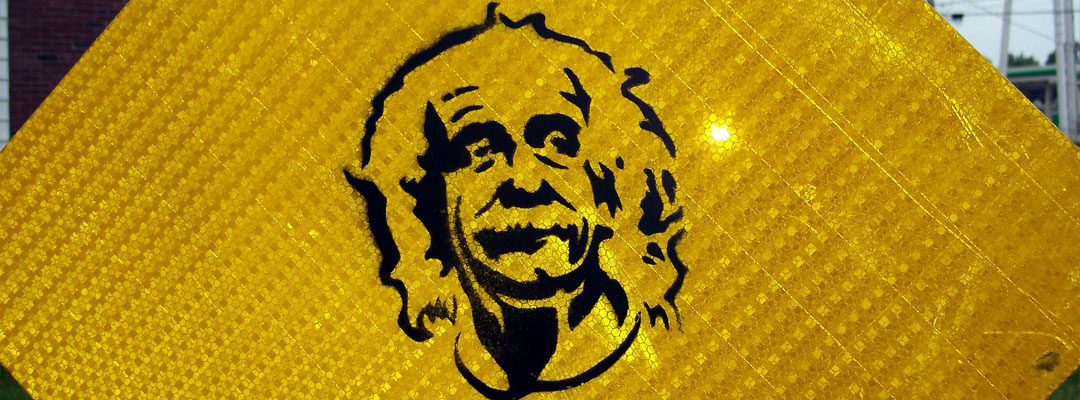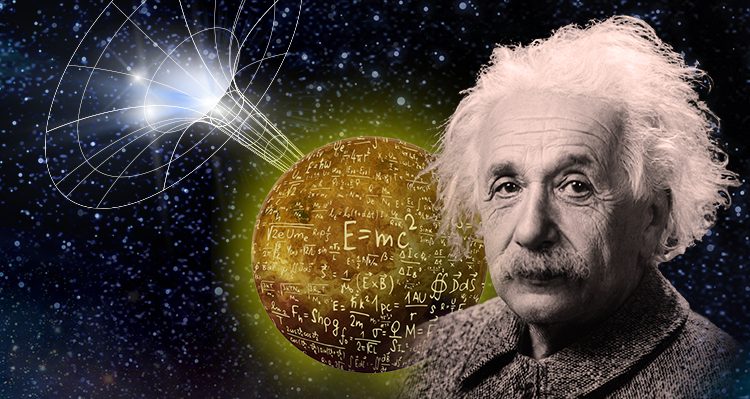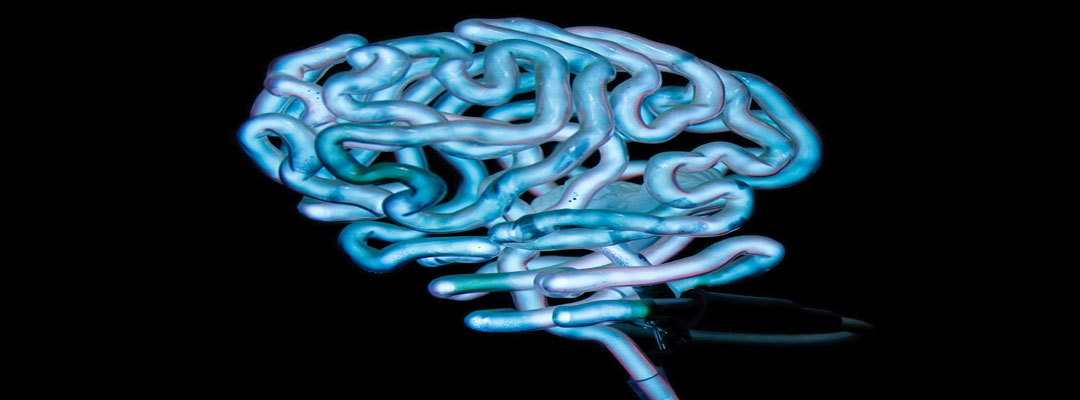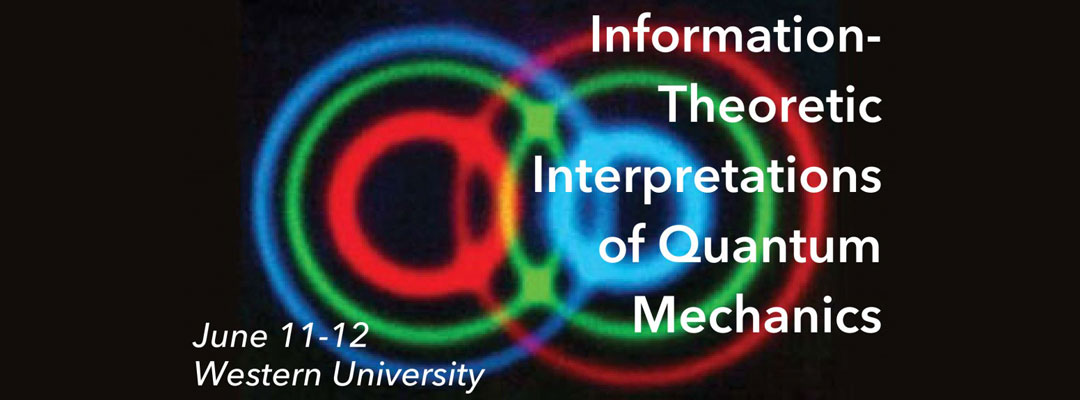Hugo Critchley: Interoception, Emotion and Self: How the Heart Gates Feelings and Perceptions
Room 1145 - Stevenson Hall Stevenson Hall, Room 1145, London, Ontario, CanadaABSTRACT Information concerning the internal state of the body is arguably the basis for emotional feelings and may serve as the primary reference for the development of self-representation underpinning many aspects of consciousness. The combination of functional and structural neuroimaging, autonomic psychophysiology and patient studies has provided valuable insight into the brain mechanisms though which [...]
Stathis Psillos: Engaging Philosophy: Einstein on the Method of Science
Stevenson & Hunt Room A - Central Library 251 Dundas St, London, Ontario, CanadaABSTRACT Albert Einstein said that scientists are poor philosophers. Yet, he added that especially in periods of scientific revolutions, scientists should engage in philosophy and should not “surrender to philosophers the critical contemplation of the theoretical foundations” of science. In this talk I will aim to critically examine Einstein’s views on the method of science [...]
Doreen Fraser: Einstein, God, Dice, and Quantum Mechanics
Stevenson & Hunt Room A - Central Library 251 Dundas St, London, Ontario, CanadaABSTRACT Einstein is best known for his contributions to the physics of spacetime, the Special and General Theories of Relativity. However, he also played an important role in the development of quantum mechanics, the other great theoretical advance in twentieth century physics. Einstein’s famous response to quantum mechanics was that “God does not play dice.” [...]
Wayne Myrvold: Einstein and the Atom
Stevenson & Hunt Room A - Central Library 251 Dundas St, London, Ontario, CanadaABSTRACT Einstein's name is widely associated with the "atom bomb," via the formula E = MC2. Less widely known is that he played a key role in providing evidence that atoms exist at all. One of Einstein's early papers was an analysis of Brownian motion, the ceaseless dance of tiny particles, such as pollen grains, [...]
Chris Smeenk: Einstein’s Universe (Classes Without Quizzes)
Stevenson & Hunt Room A - Central Library 251 Dundas St, London, Ontario, CanadaThis lecture is part of the free public lecture series, Classes Without Quizzes, co-sponsored by Western Alumni and the London Public Library. ABSTRACT Einstein developed his theory of general relativity 100 years ago. Join philosophy professor Chris Smeenk for an exploration of Einstein’s distinctively philosophical approach to physics, and how his ideas have shaped our [...]
Einstein: Philosopher | Scientist, 100 years of General Relativity
SATELLiTE Project Space 121 Dundas St, London, Ontario, CanadaEXHIBIT DESCRIPTION Explore the genius of Einstein through a uniquely philosophical lens. On the centennial of Einstein solving the puzzle of General Relativity, this interactive exhibit delves into the philosophical groundwork that informed Einstein’s approach to science. Manuscript replicas (Courtesy of the Albert Einstein Archives, the Hebrew University of Jerusalem, Israel.) illustrate in detail Einstein’s [...]
Kirstin Borgerson: Toward an Epistemic Justification for Research-Practice Integration in Medicine
Room 1145 - Stevenson Hall Stevenson Hall, Room 1145, London, Ontario, CanadaABSTRACT Arguments in favor of greater research-practice integration in medicine have tended to be ethical, political, or pragmatic. But there are good epistemic reasons to pursue greater integration, and it is important to think through these reasons in order to avoid inadvertently designing new systems in ways that replicate deep and enduring problems within current [...]
Evan Fraser: Food in 2050: The Challenge of Feeding 9 Billion
Wolf Performance Hall - Central Library 251 Dundas St, London, Ontario, CanadaABSTRACT Creating food systems capable of sustainably, equitably, and nutritiously feeding 9 billion people while dealing with climate change is one of the 21st century’s “Grand Challenges”. Meeting this challenge is about more than just producing enough - indeed, we already produce enough for everyone, but more than a billion are overweight while almost a [...]
Alastair Wilson: Emergent Contingency
Room 1145 - Stevenson Hall Stevenson Hall, Room 1145, London, Ontario, CanadaABSTRACT I begin by distinguishing between two conceptions of what needs explaining in modal metaphysics - necessity or contingency - and arguing that we should take seriously the neglected 'necessity-first' perspective. Then I illustrate how this perspective might work by offering a radical new theory of modality based on Everettian quantum mechanics (EQM), otherwise known [...]
Cordelia Fine: Let Toys Be Toys: The Science and Ethics of Gendered Toy Marketing
Wolf Performance Hall - Central Library 251 Dundas St, London, Ontario, CanadaABSTRACT The gendered marketing of toys is under considerable scrutiny, with consumer-led campaigns against it invariably giving rise to vigorous debates. Critics argue that gendered toy marketing is socially and developmentally harmful; defenders see it as reflecting and responding to boys’ and girls’ fundamentally different interests. In this talk, based on work co-authored with Charles [...]
Cordelia Fine: The myth of the Lehman Sisters? Sex, testosterone, and financial risk-taking
Room 100 - Physics and Astronomy Building Physics and Astronomy Building, Western University, London, Ontario, CanadaABSTRACT There is growing scientific interest in the role of testosterone in financial risk-taking – a topic of considerable public interest too, with suggestions that there is “too much testosterone on Wall Street”. Both research and debate is often grounded in an implicit model in which testosterone is presumed to be the proximal mechanism underlying [...]
Carl Craver: Memory, Time and Agency
Room 100 - Physics and Astronomy Building Physics and Astronomy Building, Western University, London, Ontario, CanadaABSTRACT Individuals with episodic amnesia and deficits in episodic future projection are frequently described as trapped in an eternal present or bound to stimuli in the here and now. I argue that individuals with medial temporal lobe damage and deficits in these capacities nonetheless retain much of their orientation in time and much of their [...]
Carl Craver: Ontic Basis of Network Explanation
Room 1145 - Stevenson Hall Stevenson Hall, Room 1145, London, Ontario, CanadaABSTRACT Network models are increasingly used across the sciences to describe complex relations among a number of individual actors. Philosophers enamored of this modeling approach claim to find in it evidence for non-causal, distinctively mathematical, or non-decompositional explanations. Using examples from contemporary resting state fMRI research, I show that this philosophical work in general misunderstands [...]
Rotman 2016 Annual Conference: Rethinking the Taxonomy of Psychology
Ivey Spencer Leadership Centre 551 Windermere Road, London, Ontario, CanadaWORKSHOP DESCRIPTION This workshop focused on an emerging research project in the cognitive neurosciences wherein the traditional scientific approach of using psychological investigations to enhance our understanding of the brain has been flipped, and instead scientists are using neuroscientific investigations to challenge and change the conceptual foundations of psychology. Specifically, it has become possible, using [...]
Computationally Assisted Mathematical Discovery and Experimental Mathematics: ACMES 2
CONFERENCE DESCRIPTION Computational Discovery, also called Experimental Mathematics, is the use of symbolic and numerical computation to discover patterns, to identify particular numbers and sequences, and to gather evidence in support of specific mathematical assertions that may themselves arise by computational means. In recent decades, computer-assisted mathematical discovery has profoundly transformed the strategies used to [...]
2016 PhilMiLCog Graduate Student Conference
PhilMiLCog is a three-day graduate conference with a broad and interdisciplinary scope. The conference, now in its 14th year, is recognized as one of the top philosophy graduate conferences in North America, synthesizing research from the Philosophy of Mind, Language, and Cognitive science, including psychology, linguistics, evolution, and computer science. PhilMiLCog provides an opportunity for [...]
Information-Theoretic Interpretations of Quantum Mechanics: 2016 Annual Philosophy of Physics Conference
Room 114 - North Campus Building 2004 Perth Drive, London, Ontario, CanadaCONFERENCE DESCRIPTION Information-Theoretic Interpretations of Quantum Mechanics (#ITIQM) is a two day workshop taking place June 11-12, 2016 at Western University in London, Ontario, Canada. This is the 20th annual UWO philosophy of physics conference. To view the conference program and additional resources, please visit the conference page. The workshop is inspired by Jeffrey Bub’s [...]
Andrew Light: What Happened in Paris? How Differentiation Evolved to Create a Global Climate Agreement.
Room 2202 - Spencer Engineering Building Spencer Engineering Building, Western University, London, Ontario, CanadaABSTRACT Last December, after twenty years of apparent incremental progress, over 190 countries meeting under the auspices of the United Nations Framework Convention on Climate Change managed to create what promises to be a lasting international climate agreement. Debates continue however over whether the greenhouse gas mitigation commitments that parties brought to the table in [...]
Catherine Stinson: The Body in ‘Mental Illness’
Martha Bishop Community Room - Landon Library 167 Wortley Road, London, Ontario, CanadaABSTRACT If mental and physical are separate domains, “mental illness” should not involve the body. But bodily symptoms are common among people diagnosed with psychiatric disorders. Examples are altered perceptions of hot and cold, and hallucinations of touch. Overlooking the body may contribute to the stigma of psychiatric diagnosis. SPEAKER PROFILE Catherine Stinson is a [...]
Jackie Sullivan: Understanding Mental Illness: Will a Single Explanatory Model Do?
Martha Bishop Community Room - Landon Library 167 Wortley Road, London, Ontario, CanadaABSTRACT The medical model of mental illness is often characterized as assuming that mental illness is a disorder of the brain. In contrast, the biopsychosocial model allows for the possibility that mental illness is caused by a combination of biological, psychological and environmental causes. Which model is superior for understanding, explaining and treating mental illness? [...]


















